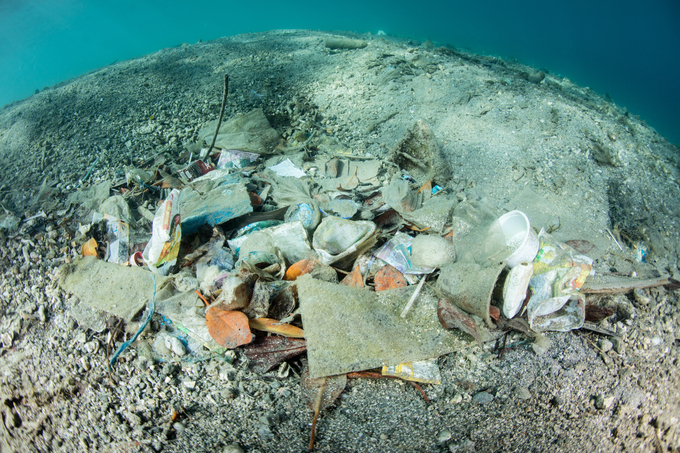
Have you ever heard of the ‘Garbage Island’ in the Pacific Ocean? It is a collection of garbage from all around the world. The most important thing that we have to know is that most of the garbage consists of plastic. These pieces of plastic are a serious environmental hazard, so the whole world needs to find a solution to this global problem.
According to statistics from the National Statistical Office, Korea generates ten million tons of plastic waste per year. It means annual plastic use per capita is about 132 kg. Most of the plastic waste is generated from everyday things like cosmetics, which contain a lot of microplastics. The fishing industry also generates a lot of microplastics from tools such as buoys. Finally, these plastic wastes go to us through bioaccumulation. The process to treat plastic waste generates a lot of toxic gas or other microplastics. Some of that pollutes the air and ground, and others find their way to the sea. The garbage in the ocean collects and becomes a garbage island. Plastic not only pollutes the ocean but also threatens the marine ecosystem. Unfortunately, the techniques to dispose of plastic waste not well developed. Research plastic waste disposal is expensive. Disposing of plastic waste is also needs expensive and generates many pollutants.
To help solve the problem of plastic waste, reducing the use of plastic is essential. Korea banned disposable plastic cups when you consume food or drinks in a restaurant. Restaurants must now use washable cups, glasses or mugs instead of disposable ones. If a restaurant or customer breaks the regulation, they will be fined 500,000 won. In addition, businesses charge a small fee for plastic bags.
In other countries, various policies have been implemented. In Europe, the EU Commission suggested banning plastic straws, forks and knives and reducing the use of plastic containers. They also proposed to put the responsibility for the cost of recycling and disposing plastic waste on manufacturers of plastic items. In nine EU countries including Norway and Japan, they recycle abandoned fishing gear. Using the recycled gear, Norway produces other plastic items. Japan uses the recycled plastic for fuel for boilers.
Lee Sang-hun, a professor of in the Department of Environmental Science said, “We have to separate trash. At the moment, it can be troublesome for you, but think to the future: your separate garbage collection can help save the environment. If you reduce the demand for plastic disposal, the plastic supply must decrease.”








